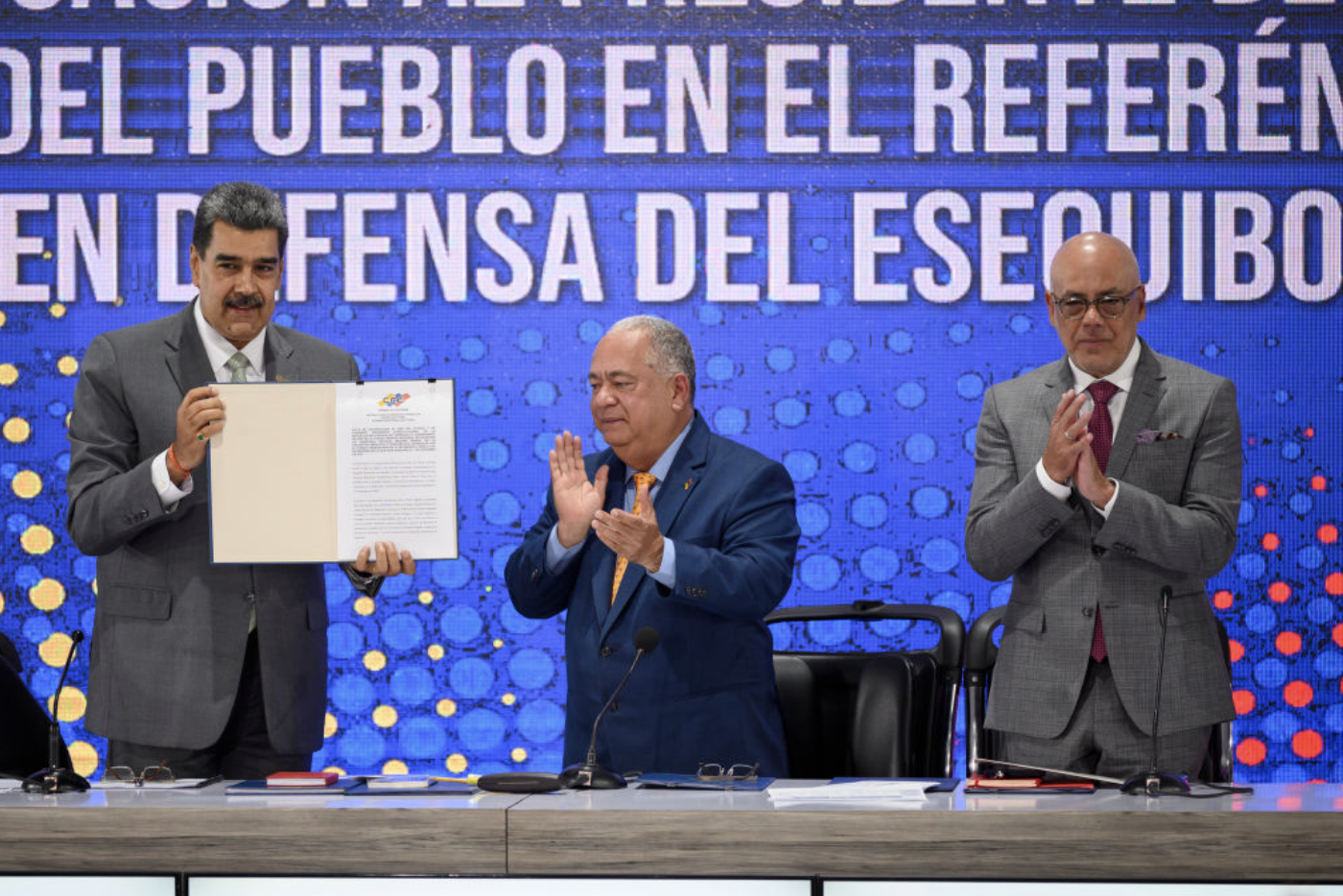SÃO PAULO — “There’s one thing South America does not need right now: trouble,” replied Brazil’s President Luiz Inácio Lula da Silva, when a reporter asked him about Venezuela’s December 3 referendum on seizing the Essequibo region of Guyana. “If there’s one thing we need to grow and improve the lives of our people, it’s for us to calm down and work hard to improve the lives of the people, and not think about fighting,” he said.
Most analysts agree that the Venezuelan government’s increasingly belligerent rhetoric toward Guyana should not be understood as a precursor to an actual conflict. But Venezuela’s rhetoric alone—Maduro’s Minister of Defense, General Vladimir Padrino López, last month appealed for “combat” over Essequibo—is particularly problematic for Lula. In May of this year, to great fanfare, Lula re-established diplomatic ties with Caracas and positioned himself as Maduro’s critical diplomatic ally.
The traditional strategy of Lula’s Workers Party has been to embrace Venezuela’s leaders to gain influence over them. But it has largely failed over the past two decades; Venezuela has experienced severe democratic backsliding. This strategy now faces another critical test. The mere fact that Guyana is considering asking…









